
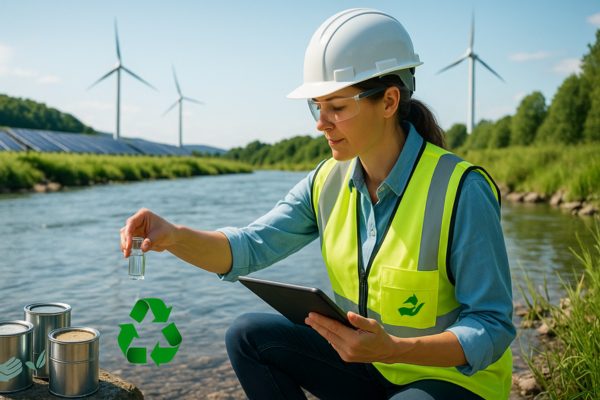
Looking to make a real difference for our planet while building a rewarding career? The environmental sector is experiencing unprecedented growth with over 87,000 positions available nationwide, and the best part is that many jobs that help the environment entry level require minimal to no prior experience.
Many passionate individuals want to work in environmental careers but don’t know where to start or think they need extensive experience. The truth is, environmental careers no experience are more accessible than ever before. Whether you’re a recent graduate, career changer, or someone with just a high school diploma, there’s a green job waiting for you.
Entry-level environmental jobs offer accessible pathways into green careers, with positions available for every education level – from high school diplomas to bachelor’s degrees. According to the Bureau of Labor Statistics, environmental scientists and specialists can expect 7% job growth through 2033, faster than the average for all occupations.
This comprehensive guide covers 25+ environment science entry level job titles, salary ranges from $40,000-$96,000, educational requirements, and exactly how to land these positions. Whether you’re interested in entry level environmental scientist jobs, planning roles, or technical positions, you’ll discover the perfect career path to protect our planet while earning a competitive salary.
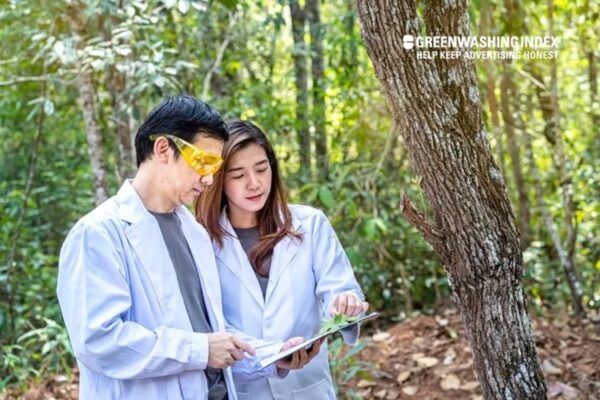
Entry-level environmental jobs are positions designed for individuals beginning their careers in the environmental sector. These roles typically require little to no prior professional experience, making them perfect gateways into meaningful work that directly impacts our planet’s health. From environmental science jobs entry level in laboratories to fieldwork positions monitoring ecosystems, these careers span diverse industries and skill sets.
The environmental field encompasses far more than just outdoor conservation work. Today’s environmental science entry level jobs include positions in renewable energy, sustainable business practices, environmental health and safety, policy development, and green technology. Whether you’re analytically minded and prefer data analysis or enjoy hands-on fieldwork, there’s an environmental career that matches your interests and abilities.
The rapid growth in entry level jobs in environmental health sciences stems from several converging factors. Climate change awareness has pushed businesses and governments to invest heavily in environmental compliance and sustainability. New regulations require companies to monitor their environmental impact, creating thousands of positions for environmental technicians, analysts, and consultants.
Additionally, public health concerns about air quality, water safety, and toxic substances have expanded the need for environmental health entry level jobs. The Environmental Protection Agency (EPA) reports increasing demand for professionals who can assess and mitigate environmental health risks, from industrial emissions to drinking water quality.
Choosing jobs that help the environment entry level means contributing to critical global challenges while building a stable career. Environmental professionals directly influence:
| Traditional Career Impact | Environmental Career Impact |
| Focus on profit margins | Balance profit with planetary health |
| Limited sustainability consideration | Sustainability at the core of decisions |
| Reactive to regulations | Proactive in creating positive change |
| Individual company benefits | Benefits extend to entire communities |
| Short-term thinking | Long-term environmental legacy |
Understanding which environmental science entry level jobs match your current education level is crucial for a successful job search. Let’s explore opportunities organized by educational requirements.
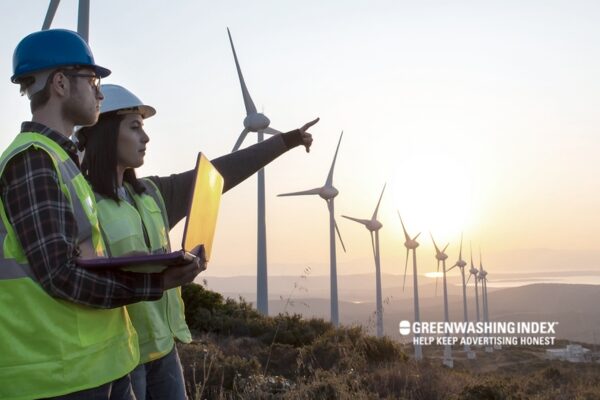
Not everyone needs a four-year degree to start making a difference. These environmental careers no experience positions offer on-the-job training and clear advancement paths:
1. Field Technician Field technicians collect environmental samples and data from various locations. You’ll travel to sites, gather soil, water, and air samples, and use GPS equipment to document findings. Starting salaries range from $35,000-$45,000, with growth potential as you gain certifications.
2. Environmental Test Technician These technicians conduct basic laboratory tests on environmental samples. While some positions prefer an associate degree, many employers hire high school graduates and provide training. The work involves operating testing equipment and maintaining detailed records of results.
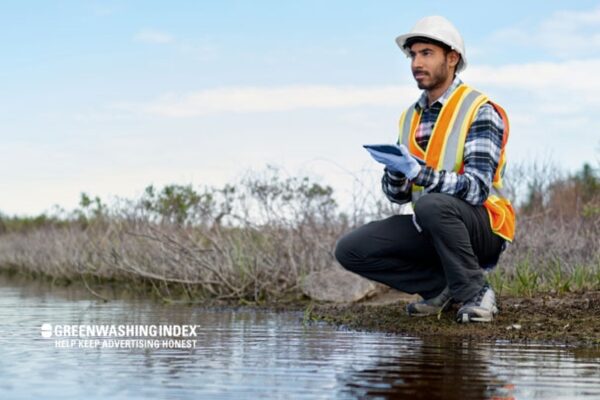
3. Natural Resource Assistant Working with agencies like the National Park Service, natural resource assistants help maintain parks, monitor wildlife, and educate visitors. These positions often lead to permanent federal employment with excellent benefits.
4. Junior Environmental Sales Entry Level Environmental sales entry level positions involve selling eco-friendly products and services. Companies selling solar panels, water filtration systems, or sustainable materials actively recruit motivated individuals without requiring environmental degrees. Base salaries start around $40,000 plus commissions.
5. Production Technician Manufacturing facilities need production technicians to ensure environmental compliance during operations. You’ll monitor waste streams, maintain pollution control equipment, and help implement sustainable production methods.
A two-year associate degree opens additional opportunities with higher starting salaries:
1. Environmental Laboratory Technician Lab technicians analyze environmental samples using sophisticated equipment. With an associate degree in environmental science or chemistry, you can earn $45,000-$55,000 starting salary. The American Society for Clinical Laboratory Science offers certification programs to boost your credentials.
2. Water Treatment Operator Operating water treatment facilities requires technical knowledge but not a bachelor’s degree. Most states require certification, which you can obtain with an associate degree and on-the-job training. Salaries start around $48,000.
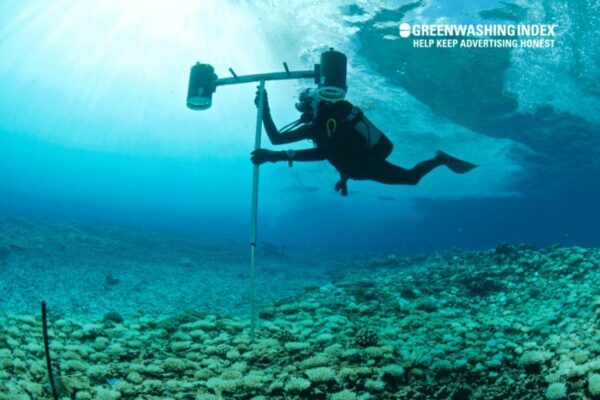
3. Environmental Compliance Assistant Help companies meet environmental regulations by maintaining records, preparing reports, and coordinating with regulatory agencies. This role bridges technical knowledge with administrative skills.
A bachelor’s degree significantly expands your options for entry level environmental science jobs:
1. Entry Level Environmental Scientist Jobs Environmental scientists analyze environmental problems and develop solutions. Entry level environmental scientist jobs involve fieldwork, data analysis, and report writing. According to recent data, starting salaries average $55,000-$65,000. These positions exist in consulting firms, government agencies, and private corporations.
2. Entry Level Environmental Planner Jobs Entry level environmental planner jobs focus on assessing the environmental impact of proposed developments. You’ll work with engineers, architects, and government officials to ensure projects comply with environmental regulations. Planning positions typically start at $50,000-$60,000 annually.
3. Entry Level Analyst Jobs Environmental Science Industry Entry level analyst jobs environmental science indutry involve data analysis, modeling, and reporting on environmental metrics. Whether tracking carbon emissions or analyzing water quality trends, these positions combine technical skills with environmental knowledge. Starting salaries range from $52,000-$62,000.
4. Wildlife Biologist Study animals and their habitats to support conservation efforts. Entry-level positions with federal agencies like the U.S. Fish and Wildlife Service offer competitive salaries starting around $45,000-$55,000 with excellent advancement opportunities.
5. Environmental Engineer Though some positions prefer master’s degrees, many environmental engineering roles accept bachelor’s degrees. Starting salaries average $58,000-$68,000, with rapid growth potential.
The sustainability sector represents the fastest-growing segment of environmental careers. Entry level environmental sustainability jobs combine traditional environmental science with business strategy and social responsibility.
Clean energy analysts evaluate renewable energy projects for feasibility and return on investment. These entry level analyst jobs environmental science indutry professionals work with solar, wind, and other alternative energy companies to optimize installations and track performance metrics. Entry-level positions start at $55,000-$65,000, with many companies offering additional training in energy modeling software.
To excel in this role, you’ll need strong analytical skills and basic understanding of renewable energy technologies. The International Renewable Energy Agency (IRENA) provides excellent resources for staying current with industry trends and technologies.
Climate consultants help organizations understand and mitigate their climate impact. These entry level environmental sustainability jobs involve conducting greenhouse gas inventories, developing carbon reduction strategies, and ensuring compliance with climate regulations. Starting salaries range from $50,000-$62,000, with consulting firms often providing extensive training.
Hands-on technicians install and maintain solar panels, wind turbines, and other renewable energy systems. While some positions require technical certificates, many companies hire entry-level workers and provide training. The Solar Energy Industries Association reports strong job growth in this sector, with starting wages of $18-$25 per hour.
Entry level environmental advocacy jobs with non-profit organizations offer unique opportunities to drive policy change and public awareness. Positions include:
Organizations like Greenpeace, Sierra Club, and Environmental Defense Fund regularly hire entry-level professionals passionate about environmental advocacy.
Environmental health entry level jobs represent a critical intersection between public health and environmental protection. These positions focus on identifying and mitigating environmental factors that impact human health.
Environmental health specialists investigate how environmental factors affect community health. Working for local health departments or federal agencies like the Centers for Disease Control and Prevention (CDC), these professionals:
Starting salaries for entry level jobs in environmental health sciences range from $45,000-$55,000, with government positions offering comprehensive benefits and job security.
Air quality consultants monitor and assess air pollution levels to ensure compliance with Clean Air Act standards. These specialists use sophisticated monitoring equipment and modeling software to track pollutants and recommend mitigation strategies. Entry-level positions typically require a bachelor’s degree in environmental science or related field, with starting salaries of $48,000-$58,000.
Water quality technicians ensure safe drinking water and protect aquatic ecosystems. Daily responsibilities include:
The American Water Works Association offers certifications that can boost your earning potential in this field.
Most entry level jobs in environmental health sciences require:
Educational Background:
Essential Skills:
Day in the Life Breakdown:
| Time | Environmental Health Specialist | Air Quality Consultant | Water Quality Technician |
| 8:00 AM | Review inspection schedule | Check monitoring stations | Calibrate testing equipment |
| 9:00 AM | Conduct facility inspection | Analyze air quality data | Collect water samples |
| 11:00 AM | Document violations found | Meet with facility managers | Perform laboratory tests |
| 1:00 PM | Write inspection reports | Model pollution dispersion | Analyze test results |
| 3:00 PM | Follow up on corrections | Prepare compliance reports | Update monitoring database |
| 4:00 PM | Plan next day’s inspections | Research new regulations | Maintain equipment |
Breaking into environmental careers no experience might seem daunting, but with the right strategy, you can land your dream green job within months. Here’s your comprehensive roadmap.
Creating a compelling resume for environmental science jobs entry level requires highlighting transferable skills and relevant experiences:
1. Emphasize Relevant Coursework List environmental science, biology, chemistry, or sustainability courses prominently. Include specific projects or research that demonstrate practical application.
2. Highlight Transferable Skills
3. Include Certifications Even without experience, certifications show commitment:
4. Quantify Academic Achievements
Volunteer work provides hands-on experience while demonstrating passion for environmental causes:
Local Opportunities:
Internship Programs:
Benefits of Volunteering:
Employers seeking candidates for environmental science entry level jobs prioritize these skills:
Technical Skills:
Soft Skills:
Building professional connections accelerates your job search for entry level environmental jobs:
Professional Organizations to Join:
Networking Action Plan:
☐ Create a professional LinkedIn profile highlighting environmental interests ☐ Attend one environmental event monthly (virtual or in-person) ☐ Connect with 5 environmental professionals weekly on LinkedIn ☐ Join 3-5 relevant environmental LinkedIn groups ☐ Volunteer for one environmental organization ☐ Conduct 2 informational interviews monthly ☐ Follow 10 environmental companies of interest ☐ Engage with environmental content by commenting thoughtfully ☐ Share one environmental article weekly with your insights ☐ Update your network about your job search progress
Knowing where to search dramatically improves your chances of landing entry level environmental science jobs. Here’s your comprehensive guide to the best job resources.
Government agencies remain the largest employers of environmental professionals. Entry level environmental scientist jobs in government offer excellent benefits, job security, and clear advancement paths.
USAJobs.gov – The federal government’s official employment site lists thousands of environmental positions. Key agencies hiring entry-level environmental professionals include:
State Government Portals: Each state maintains job boards for environmental positions. Search “[your state] environmental jobs” to find:
These niche job boards focus exclusively on environmental careers:
Professional associations offer exclusive job boards for members:
National Association of Environmental Professionals (NAEP)
Chartered Institute of Ecology and Environmental Management (CIEEM)
American Water Works Association
Target these leading environmental employers directly:
Consulting Firms:
Non-Profit Organizations:
Government Contractors:
Renewable Energy Companies:
Choosing the right educational path sets the foundation for your environmental career. Whether pursuing entry level environmental science jobs or specialized roles, understanding your options helps maximize return on investment.
Bachelor’s Degrees That Open Most Doors:
Enhance your competitiveness for environmental careers no experience with these certifications:
Free/Low-Cost Options:
Professional Certifications:
Two-year programs offer fastest route to entry level environmental jobs:
Environmental Technology Programs:
Benefits of Community College Route:
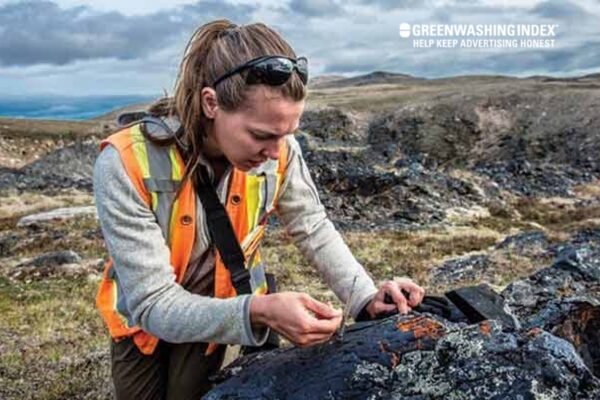
Many professionals successfully transition into environmental science entry level jobs from unrelated fields:
Transferable Backgrounds:
| Previous Field | Transferable Skills | Target Environmental Roles |
| Teaching | Communication, project planning | Environmental educator, outreach coordinator |
| Business | Data analysis, project management | Sustainability analyst, environmental consultant |
| Military | Leadership, safety protocols | Environmental compliance, field technician |
| Healthcare | Laboratory skills, attention to detail | Environmental health specialist, lab technician |
| IT | Data management, programming | GIS analyst, environmental data manager |
Transition Strategy:
Understanding salary expectations helps you negotiate effectively and plan your career trajectory in environmental science entry level jobs.
National Salary Averages for Entry Level Positions:
| Job Title | Low | Median | High | Growth Potential |
| Environmental Scientist | $45,000 | $55,000 | $65,000 | $76,000+ (5 years) |
| Environmental Engineer | $55,000 | $65,000 | $75,000 | $95,000+ (5 years) |
| Environmental Technician | $35,000 | $42,000 | $50,000 | $55,000+ (5 years) |
| Wildlife Biologist | $40,000 | $48,000 | $58,000 | $65,000+ (5 years) |
| Environmental Planner | $45,000 | $52,000 | $62,000 | $75,000+ (5 years) |
| Water Quality Specialist | $38,000 | $45,000 | $55,000 | $65,000+ (5 years) |
| Sustainability Coordinator | $42,000 | $50,000 | $60,000 | $70,000+ (5 years) |
| Environmental Health Specialist | $42,000 | $50,000 | $58,000 | $68,000+ (5 years) |
Geographic Variations:
Entry level environmental jobs often include valuable benefits that add 20-30% to total compensation:
Government Positions:
Private Sector Benefits:
Non-Profit Perks:
Typical Career Progression:
Years 0-2: Entry Level
Years 3-5: Mid-Level Professional
Years 5-10: Senior Professional
10+ Years: Leadership Roles
When landing entry level environmental scientist jobs, negotiate strategically:
Research Phase:
Negotiation Points:
Sample Negotiation Script: “I’m very excited about this environmental scientist position. Based on my research and the value I’ll bring through my [specific skills/certifications], I was hoping for a starting salary of $58,000. I’m also interested in discussing professional development opportunities, particularly support for GIS certification.”
Learning from others’ missteps accelerates your success in landing environmental science jobs entry level. Here are the critical mistakes that derail many applicants.
Many job seekers for environmental careers no experience underestimate their existing abilities. Every background offers valuable skills for environmental work:
Often Missed Transferable Skills:
How to Fix It: Create a skills inventory mapping your experience to environmental job requirements. For example, if applying for entry level environmental scientist jobs, highlight how your lab courses taught you proper sampling techniques and data recording.
Generic resumes get filtered out by Applicant Tracking Systems (ATS) before humans see them. Environmental science entry level jobs require specific terminology.
Must-Include Keywords by Job Type:
Application Optimization Strategy:
Dismissing unpaid opportunities is shortsighted when pursuing jobs that help the environment entry level. Volunteering provides:
High-Value Volunteer Opportunities:
One volunteer commitment of 4-6 hours monthly demonstrates genuine interest and provides talking points for interviews.
Focusing solely on “Environmental Scientist” eliminates numerous opportunities. Environment science entry level job titles vary widely across organizations:
Same Role, Different Titles:
Expanded Search Strategy: Use broad search terms and filters:
Stopping learning after graduation severely limits opportunities for entry level environmental sustainability jobs. Continuous learning demonstrates commitment and keeps skills current.
Free Professional Development Resources:
Professional Development Action Plan:
Real-world examples prove that environmental careers no experience can lead to fulfilling, impactful careers. These stories illustrate different pathways into the environmental field.
Sarah Martinez – From Retail to Water Quality Specialist
Sarah worked at Target while taking community college classes part-time. With only a high school diploma, she felt stuck until discovering environmental technician positions.
Her Strategic Approach:
Results:
Key Takeaway: Certifications and volunteer experience can overcome lack of formal education for entry level jobs in environmental health sciences.
Marcus Thompson – From Insurance Sales to Environmental Planning
After five years selling insurance, Marcus wanted meaningful work. Despite no environmental background, he successfully transitioned to entry level environmental planner jobs.
Transition Strategy:
Career Progression:
Key Takeaway: Professional skills from any industry transfer to environmental careers with strategic positioning.
Ashley Chen – Biology Major to Wildlife Conservation Success
Ashley graduated with a biology degree but no direct environmental experience. She strategically built her resume to land competitive entry level environmental advocacy jobs.
Strategic Resume Building:
Job Search Results:
Current Status (2 years later):
Key Takeaway: Combining academic projects with strategic volunteering creates compelling candidacy for competitive positions.
The environmental sector stands at an inflection point, with emerging technologies and urgent climate challenges creating unprecedented opportunities for entry level environmental science jobs.
Cutting-Edge Positions Appearing Now:
Technological advancement transforms how entry level environmental sustainability jobs operate:
Game-Changing Technologies:
Skills for Tech-Enabled Environmental Careers:
Top Growth Regions for Entry Level Environmental Jobs:
United States:
Emerging International Opportunities:
Future entry level analyst jobs environmental science indutry will require evolved skill sets:
Technical Skills for 2030:
Soft Skills Becoming Critical:
Future-Proofing Your Environmental Career:
| Investment Area | Action Steps | Expected ROI |
| Continuous Learning | Complete 2 certifications annually | 10-15% salary increase |
| Technical Skills | Learn one programming language | Access to data science roles |
| Networking | Join 2 professional associations | 3x more job opportunities |
| Specialization | Develop niche expertise | 20% higher starting salary |
| Communication | Public speaking training | Leadership role eligibility |
Yes, absolutely! Many environmental careers no experience positions exist specifically for entry-level candidates. Employers often prefer training new graduates in their specific procedures. Focus on positions labeled “entry-level,” “assistant,” or “technician I.” Highlight relevant coursework, volunteer work, and transferable skills. Consider starting with internships or temporary positions to gain initial experience. Government agencies, in particular, have structured entry-level programs designed for those without prior experience.
Among entry level environmental jobs, environmental engineers typically command the highest starting salaries, averaging $65,000-$75,000 annually. Other high-paying entry-level positions include:
However, consider total compensation including benefits, work-life balance, and growth potential rather than base salary alone.
While many environmental science jobs entry level prefer science degrees, they’re not always required. Alternative pathways include:
Focus on gaining relevant certifications and experience to compensate for non-science degrees.
Transitioning into entry level environmental jobs from other careers is increasingly common. Success strategies include:
Environmental science entry level jobs focus on studying and protecting natural ecosystems, while environmental health entry level jobs concentrate on how environmental factors affect human health.
Environmental science roles typically involve:
Environmental health positions focus on:
Both fields offer excellent career opportunities with overlapping skill requirements.
Yes, most entry level environmental advocacy jobs offer competitive salaries. Non-profit environmental organizations typically pay:
While non-profit salaries may be lower than corporate positions, they often include excellent benefits, flexible schedules, and loan forgiveness eligibility. Many professionals find the mission-driven work worth modest salary trade-offs.
Entry level environmental sustainability jobs concentrate in cities prioritizing green initiatives:
Top U.S. Cities:
Consider cost of living when evaluating opportunities, as some cities with numerous jobs have high living expenses.
Career advancement in environmental science entry level jobs typically follows this timeline:
Advancement accelerates with:
Entry-level environmental jobs offer diverse pathways into meaningful careers that protect our planet, with opportunities available at every education level and competitive salaries ranging from $40,000 to $96,000+. Whether you’re drawn to environmental science entry level jobs in laboratories, entry level environmental planner jobs shaping sustainable communities, or environmental health entry level jobs protecting public health, the environmental sector welcomes passionate individuals ready to make a difference.
The field continues expanding rapidly, with the Bureau of Labor Statistics projecting 7% growth through 2033. From environmental careers no experience requiring only high school diplomas to specialized entry level analyst jobs environmental science indutry positions, organizations actively seek fresh talent to address climate change, biodiversity loss, and pollution challenges.
Success in landing these positions requires strategic preparation: highlighting transferable skills, gaining volunteer experience, earning relevant certifications, and networking within the environmental community. Remember that jobs that help the environment entry level exist across all sectors – government, non-profit, consulting, and corporate sustainability departments all need dedicated professionals.
Start your environmental career journey today – choose one job title from this guide that interests you, update your resume with relevant environmental keywords, and apply to at least three positions this week. Join professional associations like NAEP, volunteer with local environmental groups, and begin building the network that will support your green career growth.
Your passion for the planet combined with strategic career planning can launch a fulfilling career protecting the environment we all depend on. The time to act is now – our planet needs dedicated professionals like you. Your green career awaits!
